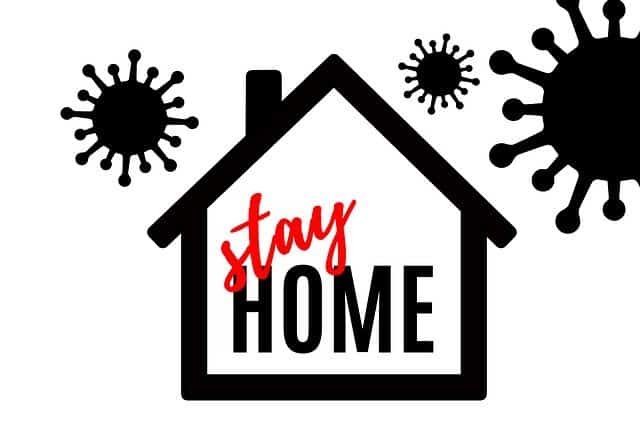Is a salt water pool safe from COVID-19 and could having your own pool help you not only stay active at home during these trying times but also stay healthy?
And if you don’t have the means to build your own pool, what sort of considerations are there if you happen to swim in a public salt water pool?
Let’s take a closer look at the safety factors regarding coronavirus and salt water pools.
The CDC states they are not aware of proof that COVID-19 can spread in salt water pool water. They also state that proper water sanitation through chlorine in a salt water pool should inactivate the virus. Staying at least 6′ apart from other bathers is also recommended while in the pool.
Is a salt water pool safe from COVID-19?
There is currently no evidence that COVID-19 can be spread in the water of a salt water pool and the chlorine in the pool should inactivate the virus if it’s present. A salt water pool uses dissolved salt that is electrified and converted into liquid chlorine using a salt chlorination system and salt cell.
So a salt water pool is also a chlorinated pool. The difference is that unlike regular chlorine pools that use commercial liquid or powder chlorine products, a salt water pool uses salt to produce its chlorine.
In both a salt water and regularly chlorinated pool, chlorine is used as the sanitizing agent to kill bacteria and in both cases the generally accepted range of chlorine to maintain is 1 ppm – 3 ppm (parts per million).
Building your own salt water pool
Call it an extended staycation.
Beginning in 2020, the number of pools built increased around the world in many locales as consumers took the opportunity to spend more time around the house due to the effects of COVID-19 and the associated lockdowns.
When the first round of lockdown began in March 2020 it wasn’t looking as promising. Around the time those of us in the northern hemisphere were looking forward to spring, pool builders were concerned about having nothing to build later that summer due to COVID.
Instead, by June as summer was taking hold some pool builders were talking about a 200% increase over 2019 pool sales. People were looking to build a pool for the long term but to make use of the time at home in the short term, too.
As lockdowns continued on and off into 2021, the growth in pool builds and ownership was only expected to continue. Staying at home can help you and your household members stay safe and a salt water pool is a great way to help pass the time during the hot summer months now and in the future.
If you do decide to build a pool, you might want to call around to pool companies early in the season because many others have the same idea.

Swimming in a public salt water pool
Many public pools have switched to salt but many others remain on regular chlorine or bromine. In any case, the water is sanitized and assuming its done properly, the real concern is therefore with the activity in the pool and changerooms ie. your interaction with other bathers.
During periods of viral outbreaks and lockdowns, indoor pools are often closed. Outdoor pools that remain open at least give the option of being outdoors with better airflow and possibly more room to move around.
The CDC‘s recommendations on swimming in any public pool largely focuses on social distancing, wearing a mask while not in the water, and things of that nature. They specifically mention to avoid wearing a mask in the water as it could impair breathing and likely won’t help anyways once it’s soaking wet.
Swimming safely in your salt water pool during outbreaks
While we can’t stop viral outbreaks like COVID-19 from occurring we can still live our lives and have some fun in our own backyard and pool. Here are some tips to help you remain safe while using your salt water pool at home.
- Continue to properly balance pool water and ensure chlorine levels are in the 1 ppm – 3 ppm range. Some suggest keeping it at 2 ppm – 4 ppm so consult your pool company or chlorinator manufacturer to see what they recommend.
- Keep a safe distance. Staying at least 6′ apart from others is usually mentioned as being the minimum.
- Keep your pool activity to people in your own household to be safe.
- Keep sick people out of the pool to be safe. Swimming can be a strenuous activity which means heavier breathing with sudden and fast movement.
- Ensure pool chairs and tables are properly sanitized and keep a good distance when sitting outside.
- Wash pool towels and swimming clothes in hot water after use.

